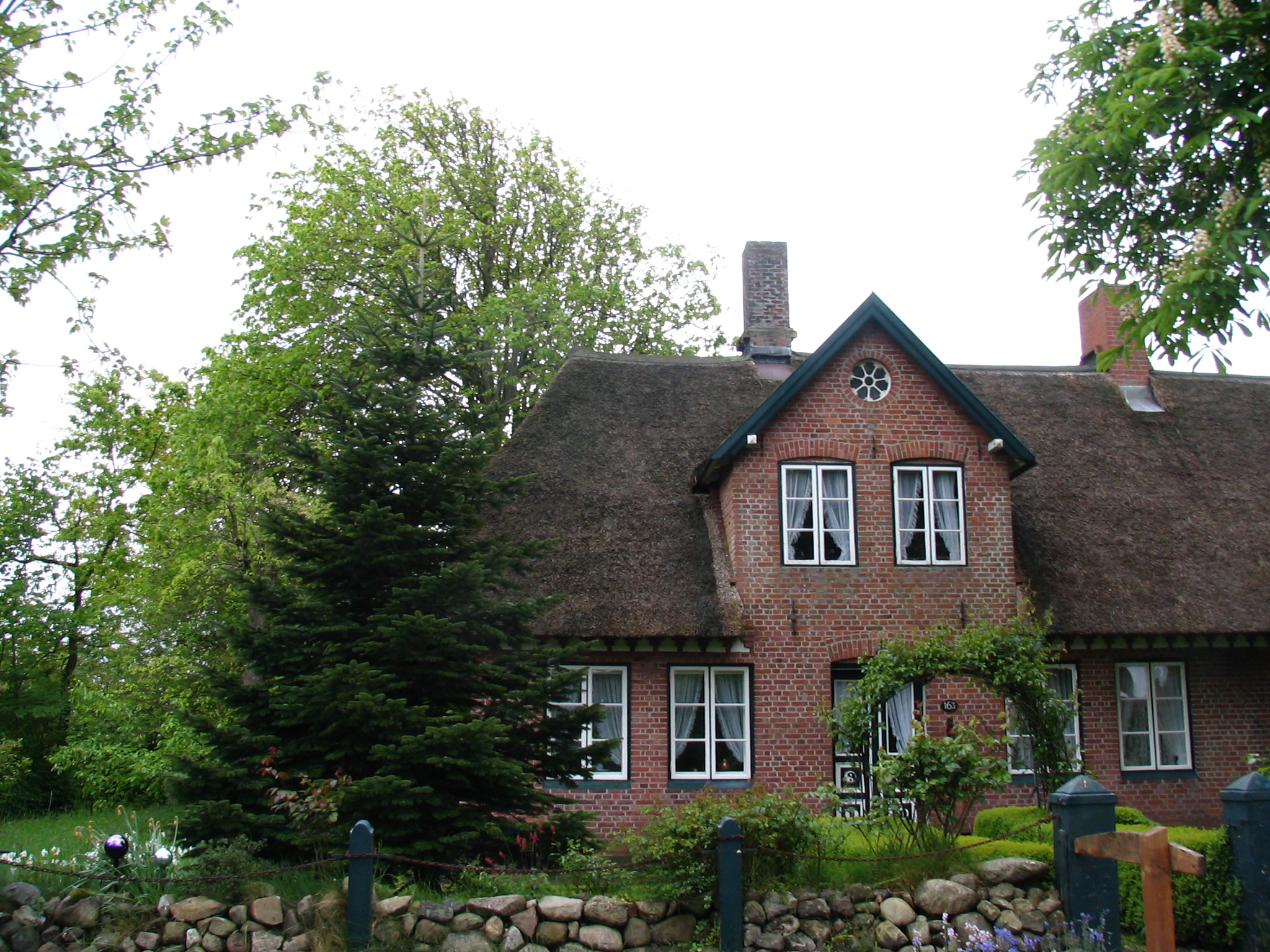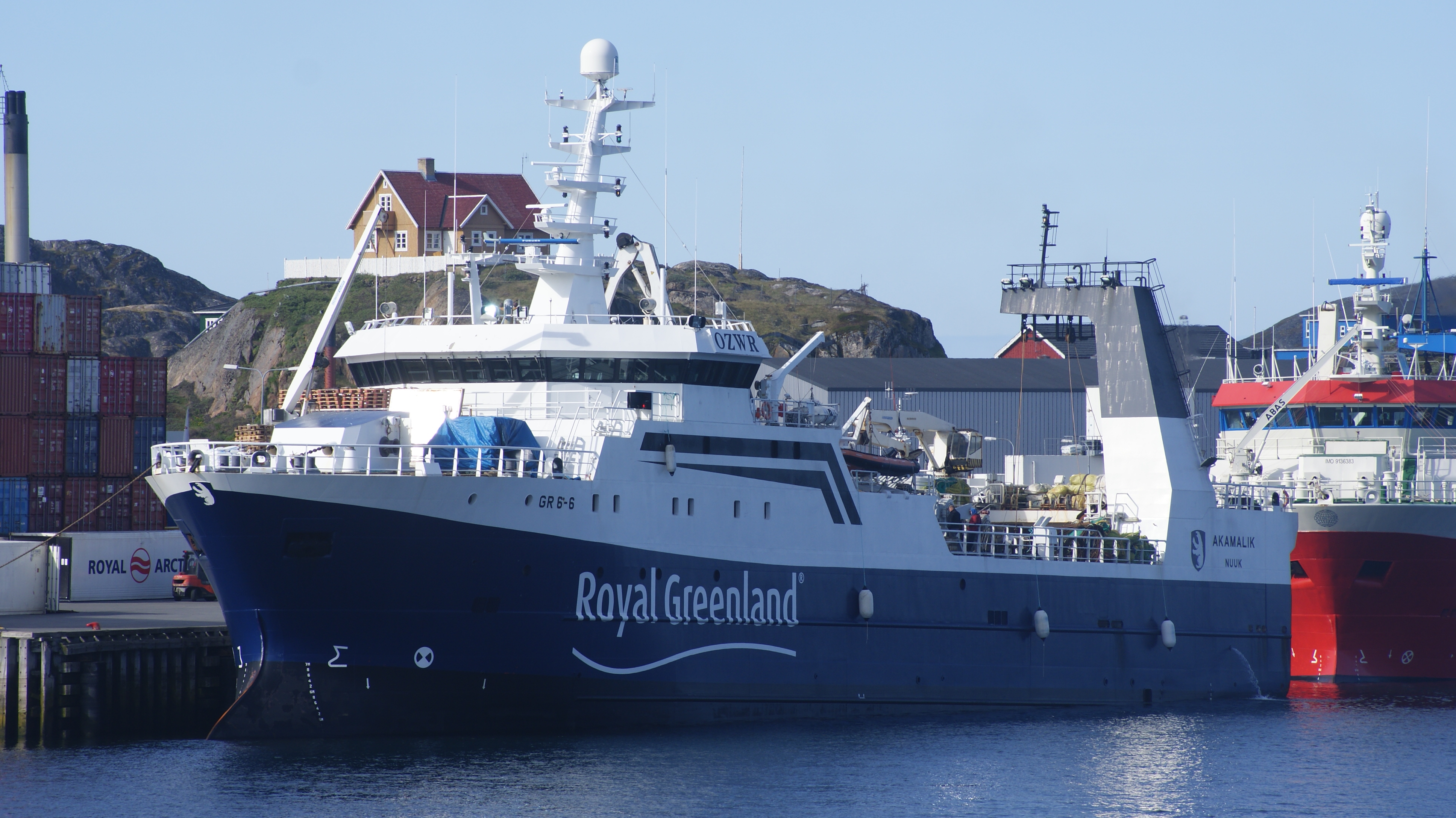|
Hinrich Braren
Hinrich Braren (31 August 1751, Oldsum – 4 August 1826, Tönning), later known as Hinrich Brarens, was a Danish sea captain, pilot inspector and nautical examiner. He wrote the first book on navigation in German language and established the first public nautical school in the Duchy of Schleswig. Within 30 years as a nautical teacher he examined about 3,500 navigator candidates. Life Hinrich Braren was born in 1751 in Oldsum on the North Frisian island of Föhr to whaling captain Brar Hinrichen. Only aged 12 he went to sea with his father and each year from 1763 to 1780 he used to sail to Greenland as a whaler. In 1780 he changed to merchant shipping and was incidentally able to acquire the full command over one of the ships of his Dutch ship-owner in the Mediterranean Sea. In 1786, while Braren sailed from Copenhagen to Greenland as a seal catcher for the Royal Greenlandic Trade, he received the order to support a Danish expedition that was determined to explore the east coast ... [...More Info...] [...Related Items...] OR: [Wikipedia] [Google] [Baidu] |
Oldsum
Oldsum (Fering: ''Olersem'') is a municipality on the island of Föhr, in the district of Nordfriesland, in Schleswig-Holstein, Germany. Geography The municipality of Oldsum consists of the three hamlets of Oldsum, Klintum (Fering: ''Klantem'') and Toftum (Fering: ''Taftem'') which are spread over some two kilometres along a main road. The population number about 600. The landscape is marked by well-preserved thatching, thatched farmhouses. Oldsum's landmark is an ancient thatched windmill whose antecessor presumably dates back to the year 1700. Though burned down 200 years later, it was rebuilt and subsequently was in use until 1954. Since 1972 the mill is exclusively used as a dwelling house. Oldsum is situated approximately two kilometres from the western shore of the island, the northern coastline is a little closer. Oldsum adjoins Süderende to the south, Dunsum to the southwest and Alkersum and Midlum, Schleswig-Holstein, Midlum to the east. History Oldsum was first record ... [...More Info...] [...Related Items...] OR: [Wikipedia] [Google] [Baidu] |
Royal Greenland
Royal Greenland A/S is a fishing company in Greenland, spun off from Kalaallit Niuerfiat in 1990 but still wholly owned by the Government of Greenland. The company operates in a number of towns and settlements in Greenland, with 20 fish processing plants and ship bases of local subsidiary units. Some of the processing plants were closed between 2007 and 2009. Royal Greenland had an annual net profit of DKK 335 million before tax in 2016. History The Royal Greenland Trading Department was founded in 1774 as a Dano-Norwegian state enterprise charged with administering the Danish settlements and trade in Greenland. The company's monopoly was finally ended in 1950 and the Home Rule Government, introduced in 1979, gained control in 1986,MIPI.Pilersuisoq KNI A/S". Mipi.nanoq.gl, Accessed 2 May 2012. Dahl, Jens. Saqqaq: An Inuit Hunting Community in the Modern World'. Univ. of Toronto Press, 2000. first renaming it "Kalaallit Niuerfiat"Culture Greenland.". Accessed 2 May 2012. a ... [...More Info...] [...Related Items...] OR: [Wikipedia] [Google] [Baidu] |
Business Administration
Business administration, also known as business management, is the administration of a commercial enterprise. It includes all aspects of overseeing and supervising the business operations of an organization. From the point of view of management and leadership, it also covers fields that include office building administration, accounting, finance, designing, development, quality assurance, data analysis, sales, project management, information-technology management, research and development, and marketing. Overview The administration of a business includes the performance or management of business operations and decision-making, as well as the efficient organization of people and other resources to direct activities towards common goals and objectives. In general, "administration" refers to the broader management function, including the associated finance, personnel and MIS services. Administration can refer to the bureaucratic or operational performance of routine of ... [...More Info...] [...Related Items...] OR: [Wikipedia] [Google] [Baidu] |
Physics
Physics is the natural science that studies matter, its fundamental constituents, its motion and behavior through space and time, and the related entities of energy and force. "Physical science is that department of knowledge which relates to the order of nature, or, in other words, to the regular succession of events." Physics is one of the most fundamental scientific disciplines, with its main goal being to understand how the universe behaves. "Physics is one of the most fundamental of the sciences. Scientists of all disciplines use the ideas of physics, including chemists who study the structure of molecules, paleontologists who try to reconstruct how dinosaurs walked, and climatologists who study how human activities affect the atmosphere and oceans. Physics is also the foundation of all engineering and technology. No engineer could design a flat-screen TV, an interplanetary spacecraft, or even a better mousetrap without first understanding the basic laws of physic ... [...More Info...] [...Related Items...] OR: [Wikipedia] [Google] [Baidu] |
Altona, Hamburg
Altona (), also called Hamburg-Altona, is the westernmost urban borough (''Bezirk'') of the German city state of Hamburg, on the right bank of the Elbe river. From 1640 to 1864, Altona was under the administration of the Danish monarchy. Altona was an independent borough until 1937. In 2016 the population was 270,263. History Altona was founded in 1535 as a village of fishermen in what was then Holstein-Pinneberg. In 1640, Altona came under Danish rule as part of Holstein-Glückstadt, and in 1664 was granted municipal rights by the Danish King Frederik III, who then ruled in personal union as Duke of Holstein. Altona was one of the Danish monarchy's most important harbor towns. The railroad from Altona to Kiel, the Hamburg-Altona–Kiel railway ( da, link=no, Christian VIII Østersø Jernbane), was opened in 1844. Because of severe restrictions on the number of Jews allowed to live in Hamburg until 1864 (with the exception of 1811–1815), a major Jewish community develop ... [...More Info...] [...Related Items...] OR: [Wikipedia] [Google] [Baidu] |
Nautical Almanac
A nautical almanac is a publication describing the positions of a selection of celestial bodies for the purpose of enabling navigators to use celestial navigation to determine the position of their ship while at sea. The Almanac specifies for each whole hour of the year the position on the Earth's surface (in declination and Greenwich hour angle) at which the Sun, Moon, planets, and First Point of Aries is directly overhead. The positions of 57 selected stars are specified relative to the First Point of Aries. In Great Britain, ''The Nautical Almanac'' has been published annually by HM Nautical Almanac Office, ever since the first edition was published in 1767. In the United States, a nautical almanac has been published annually by the US Naval Observatory since 1852. It was originally titled '' American Ephemeris and Nautical Almanac''. Since 1958, the USNO and HMNAO have jointly published a unified nautical almanac, ''The Astronomical Almanac'' for use by the navies of b ... [...More Info...] [...Related Items...] OR: [Wikipedia] [Google] [Baidu] |
Magdeburg
Magdeburg (; nds, label=Low Saxon, Meideborg ) is the capital and second-largest city of the German state Saxony-Anhalt. The city is situated at the Elbe river. Otto I, the first Holy Roman Emperor and founder of the Archdiocese of Magdeburg, was buried in the city's cathedral after his death. Magdeburg's version of German town law, known as Magdeburg rights, spread throughout Central and Eastern Europe. In the Late Middle Ages, Magdeburg was one of the largest and most prosperous German cities and a notable member of the Hanseatic League. One of the most notable people from the city is Otto von Guericke, famous for his experiments with the Magdeburg hemispheres. Magdeburg has been destroyed twice in its history. The Catholic League sacked Magdeburg in 1631, resulting in the death of 25,000 non-combatants, the largest loss of the Thirty Years' War. During the World War II the Allies bombed the city in 1945 and destroying much of it. After World War II the city belonged t ... [...More Info...] [...Related Items...] OR: [Wikipedia] [Google] [Baidu] |
Napoleonic Wars
The Napoleonic Wars (1803–1815) were a series of major global conflicts pitting the French Empire and its allies, led by Napoleon I, against a fluctuating array of European states formed into various coalitions. It produced a period of French domination over most of continental Europe. The wars stemmed from the unresolved disputes associated with the French Revolution and the French Revolutionary Wars consisting of the War of the First Coalition (1792–1797) and the War of the Second Coalition (1798–1802). The Napoleonic Wars are often described as five conflicts, each termed after the coalition that fought Napoleon: the Third Coalition (1803–1806), the Fourth (1806–1807), the Fifth (1809), the Sixth (1813–1814), and the Seventh (1815) plus the Peninsular War (1807–1814) and the French invasion of Russia (1812). Napoleon, upon ascending to First Consul of France in 1799, had inherited a republic in chaos; he subsequently created a state with stable financ ... [...More Info...] [...Related Items...] OR: [Wikipedia] [Google] [Baidu] |
Continental System
The Continental Blockade (), or Continental System, was a large-scale embargo against British trade by Napoleon Bonaparte against the British Empire from 21 November 1806 until 11 April 1814, during the Napoleonic Wars. Napoleon issued the Berlin Decree on 21 November 1806 in response to the naval blockade of the French coasts enacted by the British government on 16 May 1806.Jean Tulard, ''Napoléon'', Hachette, 2008, p. 207 The embargo was applied intermittently, ending on 11 April 1814 after Napoleon's first abdication. Aside from subduing Britain, the blockade was also intended to establish French industrial and commercial hegemony in Europe. Within the French Empire, the newly acquired territories and client states were subordinate to France itself, as there was a unified market within France (no internal barriers or tariffs) while economic distortions were maintained on the borders of the new territories. The Berlin Decree forbade the import of British goods into any Europe ... [...More Info...] [...Related Items...] OR: [Wikipedia] [Google] [Baidu] |
Eider Canal
The Eider Canal (also called the Schleswig-Holstein Canal) was an artificial waterway in southern Denmark (later northern Germany) which connected the North Sea with the Baltic Sea by way of the rivers Eider and Levensau. Constructed between 1777 and 1784, the Eider Canal was built to create a path for ships entering and exiting the Baltic that was shorter and less storm-prone than navigating around the Jutland peninsula. In the 1880s the canal was replaced by the enlarged Kiel Canal, which includes some of the Eider Canal's watercourse. Names The canal's watercourse followed the border between the duchies of Schleswig and Holstein, and from the time of its construction it was known as the "Schleswig-Holstein Canal". After the First Schleswig War, the Danish government renamed the waterway the "Eider Canal" to resist the German nationalist idea of Schleswig-Holstein as a single political entity; but, when the region passed into Prussian control after the Second Schleswig War, t ... [...More Info...] [...Related Items...] OR: [Wikipedia] [Google] [Baidu] |
Maritime Pilot
A maritime pilot, marine pilot, harbor pilot, port pilot, ship pilot, or simply pilot, is a mariner who maneuvers ships through dangerous or congested waters, such as harbors or river mouths. Maritime pilots are regarded as skilled professionals in navigation as they are required to know immense details of waterways such as depth, currents, and hazards, as well as displaying expertise in handling ships of all types and size. Obtaining the title 'maritime pilot' requires being an expert ship handler licensed or authorised by a recognised pilotage authority. History The word ''pilot'' is believed to have come from the Middle French, ''pilot'', ''pillot'', from Italian, ''pilota'', from Late Latin, ''pillottus''; ultimately from Ancient Greek πηδόν (pēdón, "blade of an oar, oar"). The work functions of the pilot can be traced back to Ancient Greece and Rome, when locally experienced harbour captains, mainly local fishermen, were employed by incoming ships' captains to b ... [...More Info...] [...Related Items...] OR: [Wikipedia] [Google] [Baidu] |







